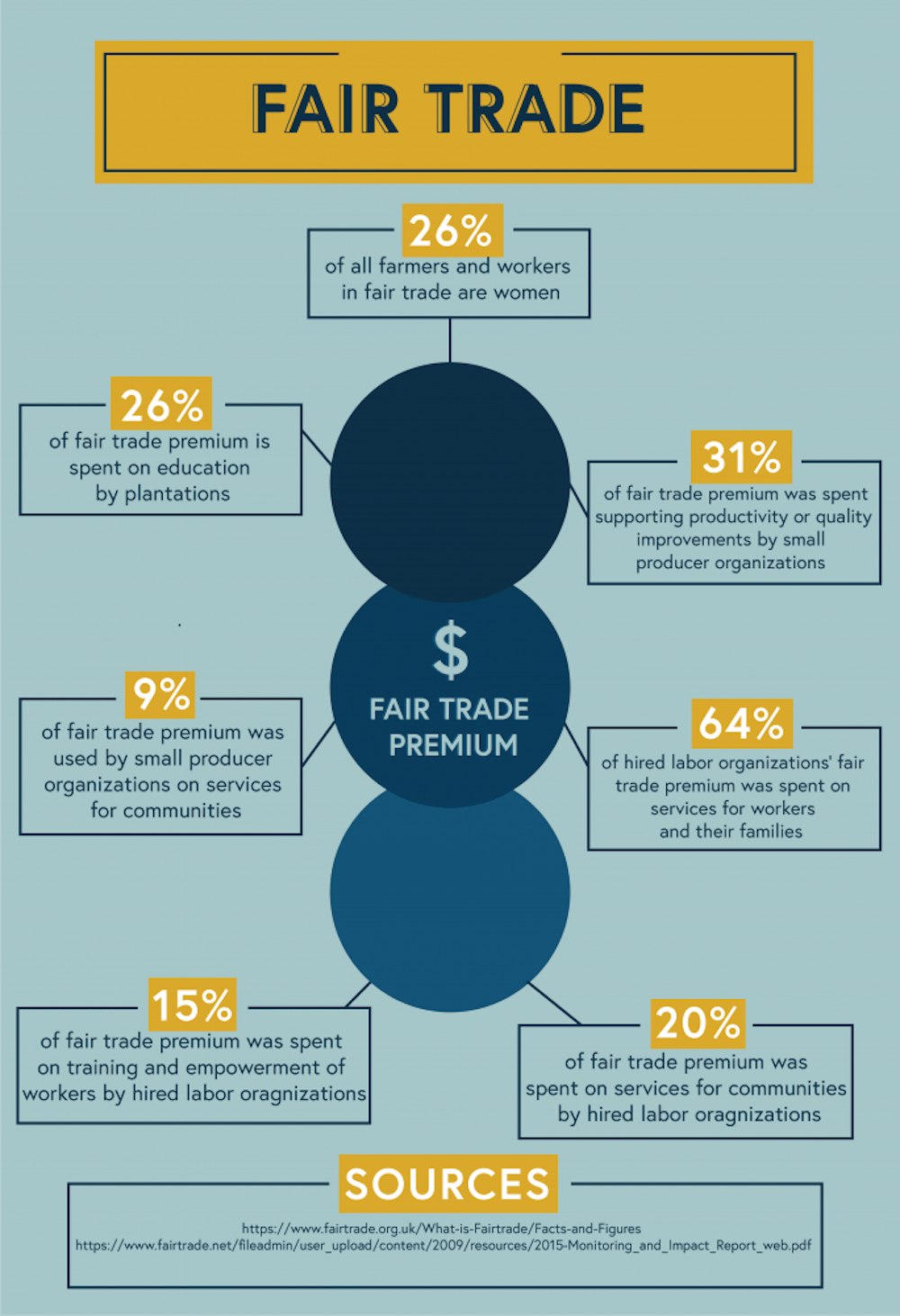Fair-trade is a movement dedicated to creating equity for workers in international trade and promoting sustainable farming. This movement is now being brought to ASU.
As what is now the largest fair trade-designated university in the U.S., ASU will have immense contributions to the fair trade movement. The responsibility of furthering the movement rests with the University’s students.
Jennifer Keahey, an assistant professor at ASU’s School of Social and Behavioral Sciences and fair trade researcher, said the movement is primarily consumer-driven.
“It’s really the consumers that are driving the movement because they’re consciously engaged in supporting marginalized producers in southern countries who produce the kinds of goods that we eat and consume every day,” Keahey said.
Students should use ASU’s fair-trade designation to support the global community and become more conscious consumers, redirecting their purchasing power to products that make a difference.
Fair trade focuses on changing the way consumers approach purchasing.
“They’re kind of trying to change the definition of quality to include things like fair wages for farmers and farm workers and to include things like environmentally sustainable modes of production,” Keahey said. “Instead of thinking about how cheap and how much we can buy things for, it’s thinking about how well are the workers paid and what are the environmental impacts.”
The movement at ASU provides students with easy access to fair trade-certified products, and we should take advantage of that. When shopping for products such as coffee, tea, chocolate or bananas, students should look for the fair-trade certification.
Consciously promoting fair trade not only ensures better working conditions for farmers of goods like tea, for example, but it also has wide-scale impacts on communities worldwide.
“Producers get social premium on top of the price for their tea,” Keahey said. The premium refers to the added cost consumers pay in addition to the base price of the good that Fairtrade sets.
"And that social premium money goes into a collective account and then all the fair-trade producers in that cooperative or in that farm are able to sit down and vote on how to spend that money," she said.
And even though the cost of that premium is shifted to consumers — which may turn some college students away from fair-trade products — we should remember that fair-trade prices and premiums are set so the producers earn a living wage, work in fair conditions and live in healthy communities, something out of reach for many farmers in developing nations.
For example, in Kenya, the average annual household income for a coffee farmer was $1120 in 2015, according to a study commissioned by Fairtrade International. The study says that a decent living income for such a household in Kenya is around $3000.
According to the 2015 Impact Report from the Fairtrade Foundation, small-producer organizations, which Fairtrade says are usually family-run, spent 31 percent of their Faitrade premium supporting productivity or quality improvements. Faitrade certified organizations hire outside labor used 64 percent of their Premium on services for workers and their families, 15 percent on training and empowerment of workers, and 20 percent on services for communities.
“In terms of ASU joining as a fair trade university, the fact that we are such a large school means that we will have a tremendous impact on fair trade farmers, just if you’re thinking in terms of supply and demand,” Keahey said.
Due to the sheer number of students enrolled at the University, the more students ask for fair trade products to be stocked in stores, the more students can contribute to the movement of trade equity worldwide.
It is crucial for students to realize the impacts they could have on the community just with the products they choose to purchase. Keahey recommended that students ask their favorite stores to stock fair-trade certified goods — even their clothes.
"Also in terms of fair-trade clothing … is the Alta Gracia project, which is a fair-trade clothing factory in the Dominican Republic, and they produce collegiate clothing that’s fairly produced and traded and they conduct business through direct engagement with United Students Against Sweatshops," she said.
Keeping the fair-trade movement alive at ASU rests in the hands of the students.
Paying attention to what products they are buying and asking to see more fair-trade certified products in on-campus shops and restaurants will help students to become more conscious consumers in the future and become more aware of issues affecting the producers they buy from.
“If they’re voting for Alta Gracia products with their dollar ... then we’re going to see more of those kinds of t-shirts, and the market will then respond to that consumer interest," Keahey said. "So that’s really part of the whole fair trade movement, it’s really based on the consumers. And not just the consumers in general but young consumers have been really instrumental in driving the movement forward."
Reach the columnist at kalbal@asu.edu or follow @karish2021on Twitter.
Editor’s note: The opinions presented in this column are the author’s and do not imply any endorsement from The State Press or its editors.
Want to join the conversation? Send an email to opiniondesk.statepress@gmail.com. Keep letters under 500 words and be sure to include your university affiliation. Anonymity will not be granted.
Like The State Press on Facebook and follow @statepress on Twitter.





